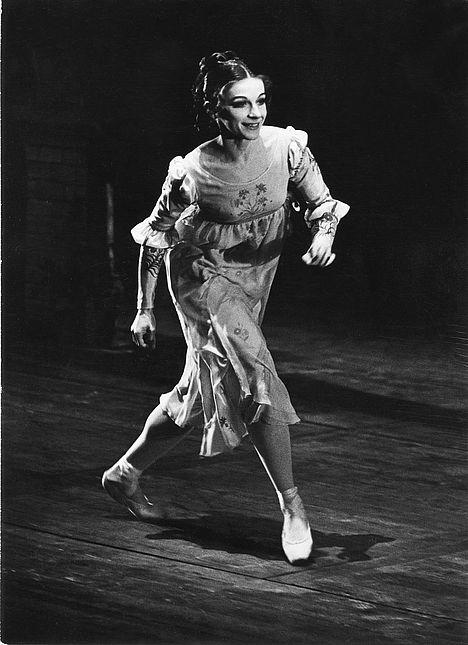How to tackle the macho NY Philharmonic: A psychologist writes
OrchestrasThe German-based US pianist and psychologist Heather O’Donnell, founder of The Green Room, has written a timely analysis of the crisis inside a macho culture. Among other remedies, she proposes:
…I believe that a rape-tolerant culture in the classical music industry boils down to three factors. This is a spontaneous proposal and certainly needs to be carved out with more precision and reflection, but here goes:
Two of these factors are individual-level traits, and one is a big fat systemic failing. Actually, they all boil down to systemic failings, as do most societal illnesses.
‘Pathological immaturity’: Musicians’ developmental process can be thwarted if they are not granted the space and time to develop as human beings, which, in a small subset of the population leads to disastrously sociopathological belief systems. Rape can seem, to a rapist, to be a good stand-in for consensual sex if he lacks the ability to humanize the other, recognize the other’s emotional depth and sense out the other’s experiential complexity. Empathy can be thwarted or even deadened if a person lacks access to human developmental experiences and processes. This pathological immaturity impacts people who needed a lot of time and care to grow into responsible and empathic adults, but for some reason or another (such as extreme training regimes in childhood, or perhaps their own histories on the receiving end of abuse), didn’t.
‘I’m better than you’: if musicians are drinking the toxic Kool-Aid of comparative and hierarchical thinking, they can mentally and emotionally justify sociopathic expressions that display and solidify power differentials. Rape can be an act of sexual gratification for the rapist, but it is also, perhaps predominantly, an expression of power and dominance of one person over another. Power dynamics show up in other ways. There are SO MANY cases of music teachers who entered into sexual relationships with students as young as 14, 15, 16 years old. Luckily, we currently live in a society in which it is generally understood, that sexual relations between a teacher and student, ESPECIALLY an under-age student, cannot be considered equal (or consensual in the minor’s case), regardless of how big the student’s crush on the teacher might be. The teacher-student relationship is just one hierarchical relationship structure in the industry. It could just as well be the conductor-orchestra player, juror-contestant, or presenter-musician. In the case of Cara Kizer, there was a clear power differential. Her rapist, Matthew Muckey, had tenure. She did not. If one grows up in an environment in which every day, every single f-ing day, we align humans on a scale of better-worse, more powerful-less powerful, more worthy-less worthy, then it’s not so very surprising when the power expression turns criminal. It’s just a step further down the road of toxic hierarchicals.
‘Rape requires a supportive culture’: Now, onto the systemic issue: rape doesn’t happen in a vacuum. It requires enabling cultures and organizational structures. Abuser-tolerant organizations are characterized by an adherence to unchangeable and entrenched traditions and the idolization of leading figures who may perceive themselves as exempt from societal norms and responsibilities. It seems to me that the general culture of the Classical Music industry is situated somewhere within two (seemingly) disparate model groups: 1) the church and 2) college frat boys. The church model enables ‘gods’ to carve out their own self-serving rules, and assigns lower-standing members of the society into servile and enabling roles. The frat-boy-world is steeped in hook-up culture and sexual competition among its ‘brothers’. Both models display a general disregard or even disdain for women who are viewed as lower-class members of the society.
Read more here.






How is it that the NY Phil’s normally publicity-hungry executive advisor Deborah Borda remains silent?
Did she have anything to do with the April 12 sudden exhumation of this matter by freelance reporter Sammy Sussman, four years after the men were reinstated but only months after Borda stepped down as CEO?
Or with the lightning speed with which Local 802’s Sara Cutler readied her “horrified” statement “as a woman” and directed “the full resources of Local 802 to erase the culture of complicity” at the NY Phil?
No, of course not. She’s too busy with Borda Arts and has never met or spoken to Sussman or Cutler. She wouldn’t still be fuming over an arbitrator’s decision she had to *eat* or “advising” Ginstling and the Board how to respond to the created new storm or counseling festivals in Taiwan or Oregon on the presumption of men’s guilt and the avoidance of bad publicity.
Let’s not forget that Ms. Borda still has a formal relationship with the NYPhil: Executive Advisor to the President and Board of Directors.
Does this not require some involvement on her part, given her history with this problem?
Framing misbehavior as ‘systemic failings’, is relocating personal responsibility towards ‘the system’, and this is treating entirely PERSONAL failings as somehow inevitable results of organisational structures. This is nonsense: everybody has a personal responsibility of her/his behavior.
Also explaining personal underdevelopment as environmental failings in the upbringing, removes personal responsibility. There are people who experienced all kinds of hardships in their youth, material and/or emotional, and still developed into mature, responsible adults.
This thinking looks a bit like excusing criminals for their behavior because of having suffered loveless childhoods – turing perpetrators into victims.
Claiming that ‘hierarchical thinking’ is partly to blame as well, suggests the perils of cultural relativism: anything, anybody, is as good as anything, anybody else, we should appreciate all contributions to the art form and not worry about quality or achievement as such. In this way of thinking, all musical work is being personalized and emptied of meaning: it becomes merely decorative of social norms, and artistic standards erode and eventually disappear.
The many stories of misbehavior in the music world, including education, seems better explained by the very subjective nature of the art form, which cultivates emotional individuality, in other worlds: emotions and instincts being central and thus putting rational and ethical considerations into a less effective category. (James Levine, Charles Dutoit, etc. etc.)
Can both not be true: the individual was shaped by the system and makes independent decisions that nonetheless reflect the system? Of course it was Muckey’s awful decision to violate the victim, but going forward with it meant he either disregarded potential repercussions, or knew there would be little to none – which was true for a very long time.
Also disagree with your opinion on hierarchy. Yes, throughout history performers and teachers with experience and wisdom are venerated by pupils, for good reason. But it is undeniable that for the wrong people – sadly, too many in this field – the feeling of power and influence over others reveals their twisted, predatory side. The majority of the greats do not misuse their influence, but many do.
The author is not saying to do away with any hierarchy and quality control and respect of knowledge. But those awful people at the top who were warped by power SHOULD be held accountable.
Bravo!
This is the modern version of the age-old debate about free will vs predestination, and it requires subtle, flexible and complex thought. Borstlap goes wrong from the start by introducing the strawman of inevitability.
What a nonsense…… my comment should be read attentively. I was describing the way of thinking which tends to remove personal responsibility, nothing mroe, nothing less, and these comments show how the subject invites for woolly thinking, with a touch of woke.
People who let themselves be shaped by ‘the system’ still have full responsibility for that – as long as they are not threatened by incarceration or worse (as in dictatorships). A ‘system’ does not carry responsibility because it is not a person, it is a result of people’s decisions. To make an abstraction of it and then ‘make’ it responsible is a twisted way of thinking. Only people who are too immature to take their own responsibility in hand, ‘let’ themselves be seduced by ‘the system’. The distinction between the individual people and the system is crucial.
Individuals are responsible for their actions. Who is denying that in these comments? But there are organizations that enable, cover up, or even reward bad behaviour, and there are organizations which are set up in ways that encourage decent behaviour. Should the first sort not be reformed, and the second emulated?
Organizations are devised by people, and regulations are carried-out by people. These people are responsible for the way rules within their organizations are carried-out.With cover-ups it is again the people concerned who are responsible for this.
Interesting thoughts, but for some alternative perspectives:
She addresses personal responsibility and explains possible reasons for why it was lacking.
She discusses the institutional structures that so poorly addressed the situation.
She discusses hierarchies because because human objectification is a central part of a rapist’s motives.
Orchestras are not notable for emotional individuality. In fact, it was an atmosphere of fearful conformity and the lack of individuality that caused so many of the orchestra’s members to remain silent for 14 years.
We thus see that she is not making excuses for the individuals or the organization.
Yes but people in a position of institutional power are supposed to have the measure of responsibility that goes with that position. That is the normal situation. It is always the people and not the system that carry responsibility. Abuse of a position is always possible everywhere, and adjusting the system to prevent abuse from happening is nonsensical.
As Seneca the Younger says, virtus difficilis inventu est, rectorem ducemque desiderat; etiam sine magistro vitia discuntur.
There is a gap between “supposed to have” and “actually have”, and goodwell-constituted organizations make it easier for their members to fill the gap.
Read “Behave” by Sapolsky.
Maybe you’ll learn something.
While the internal dynamics of orchestras did contribute to a culture of silence, I think the explanation is more that full-time orchestras are places of long-term employment. There have been people in my orchestra that I’ve worked with for 35 years. And, unless I give up full-time employment as an orchestra musician (and many of us really aren’t equipped to do anything else that will pay a living wage), I’m stuck with them.
So there is enormous value placed on getting along with each other and avoiding conflict and looking the other way wherever possible. As in this case, that can lead to bad outcomes.
This is an excellent analysis. Thank you for sharing.
Dr. O’Donnell’s analysis seems solid and frankly beyond reproach. And it jibes with what I personally know of this world. Thank you for sharing it.
A progressive word salad. Unsurprising. Of course everything that’s wrong with societies is because of systems. People would be community minded, would share everything and would not be greedy or violent, if it weren’t for systems. It’d be utopia if it weren’t for capitalism or white supremacy, hierarchies only exist because of that. Riiiiiiight. White males are never victims, regardless of individual circumstances, but pretty much anyone else can be anointed to be so and thus have no responsibility for their actions.
Hey how come animals have hierarchies, did capitalism cause that also? And of course men are the same as women, it’s not like all men on average have more aggression straight out of the womb. Thank you for educating us.
This has to be the most tone deaf comment ever. The white male in this particular instance drugged and raped a female colleague. He then used his standing as a tenured orchestra member to bully said colleague out of a job. I’m not sure why you felt this was the moment to lament how white males can never be victims.
Zero lament. It most definitely sounds like a white male raped a white female in the NY Phil in 2010 and that there was cover-up about it. That’s quite independent of the psychologist above and her methodology, which apparently didn’t include any hands-on time (no pun intended) in the Philharmonic, to interview the members on the ground, reflect and write a paper, while accepting that psychology isn’t a science in a sense that it cannot double blind run experiments and that it is limited to empiricism. This was about the approach to generational trauma, which automatically precludes different sets of standards for individuals based on assigned victimhood status in society. Again, absolutely nothing about Muckey and Wang, who definitely appear guilty, and all about quasi methodology and prejudice of anti racism and equity masquerading as scientific findings. Thanks.
I don’t understand what the fuss is all about…. When I’m approached inappropriately by a man I scare him off with a fragment of Friedrich Haas on my cell phone.
Sally
Wow, dazzling insights which any bartender the land over could have enlightened us with in many fewer syllables and spared us the most of the wild conjecture along the way.
Imagine if Cara just went home that night to wait for her husband!
After reading your comment, I took another look at the chronology of events. There is some truth to what you’re saying.
Muckey’s behavior was deplorable, and there’s no doubt Cara Kizer was treated very poorly. Muckey and Wang do deserve to be fired.
Nevertheless, Cara Kizer didn’t show great judgment that evening. She most definitely should not be blamed for what happened, but perhaps others will learn from her experience.
When Ethan Bensdorf decided to invite ten of his colleagues to the apartment, he was doing a very nice thing. When he decided to include Cara Kizer, he was trying to welcome her and make her feel like she was part of the orchestra. There is absolutely no indication that the others gathered that evening (which probably included several men) did anything inappropriate. I have the impression that she was really enjoying herself.
The trouble began when Muckey and Lang arrived. It doesn’t appear that their presence bothered her in any way, but the next part is puzzling. Why did she agree to go to Muckey’s condo? She’s a married woman, and she agrees to go with these two men for a glass of wine? To her credit, she didn’t get into the hot tub.
Again, I’m not casting blame on Kizer. She definitely didn’t deserve what happened to her. Nevertheless, it doesn’t sound like she made a very wise decision.
I can just imagine the following: I’m invited to a work-related social gathering while my wife is out of town, and two female co-workers ask if I’d like to go to their place with them for a glass of wine. After thinking for a moment, I agree. If I decide to share this information later with my wife, I don’t think she’d be very pleased–and I wouldn’t blame her!
Why did Kizer agree to go to Muckey’s condo? Other commenters at SD have already explained this. She did not yet have tenure; he was on her tenure committee; when someone who’s on your tenure committee invites you to socialize, you don’t risk offending him by saying no.
Quite right. You think they’re mature people and colleagues, so quite appropriate to have a drink with them. Everybody is an adult. However, as an adult woman, nobody should have to worry about being drugged and violated by a colleague.
Shouldn’t be as simple as not allowing tenured members to have sex with the nontenured? Don’t most companies have rules forbidding relationships between subordinates and their direct – or even indirect – supervisors?
Most, but not all. In the case of musicians in large symphony orchestras in the US, if it’s not specifically forbidden in the contract, there’s probably no guarantee of enforcing any rule against it.
Some random musings on psychology over the years…
Homosexuality as a mental disorder
Lobotomies
Encouraging gays to marry opposite sex to “cure” themselves
Electroshock therapy
Scream therapy
“Conversion” therapy
SSRI drugs used as chemical “straightjackets” for the mind
Oh, wait. They are still being prescribed. My bad.
You get the picture.
Ms O’Donnell, kudos to you for the daunting task of keeping
up with the latest fads in psychology!
I had great benefits from my scream therapy although it also gave me a lot of trouble with the neighbours and answering the phone at my work. Otherwise I can recommend the cure to everybody in music life!
Sally
Those were psychiatric treatment mostly. And it is neuroleptics that act as chemical straitjackets. SSRIs numb the genitals and may create mass shooters, but they have a decent placebo effect to shrinks give them out like candy.
People and organizations need to look in the mirror and ask themselves: “How honest, sensible, rational and ethical are we? Or aren’t we?”
A lack of integrity easily ensues when those characteristics are ignored or disregarded.
From one psychologist to another: STOP THE ARMCHAIR PSYCHOANALYSIS! You are embarrassing those of us who take our professional role and privilege seriously! Norman, any responsible psychologist would and should not comment on another person’s mental states without having done a formal diagnostic assessment. Please do not indulge with such post anymore.
I don’t see any claim from the author at ‘psychoanalyzing’ either of the perpetrators. It seems to me to be just a reflection on the situation. Are psychologists banned from using their voices to comment on a situation?
The author of the original article offers an enlightening and appropriate analysis of some of the possible causes that contribute to misogyny and rape-culture in the professional and academic music world. As a professional musician who has worked with various ensembles for decades, I can confirm that competitive culture, intense tortuous musical training, pathological immaturity, and frat boy mentality contribute greatly to the creation of unsafe environments for female musicians. Thank you, Ms. O’Donnell.